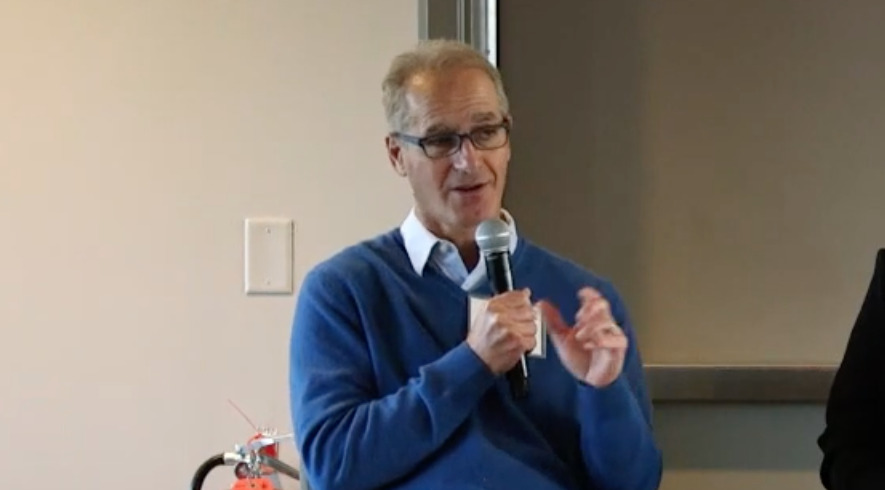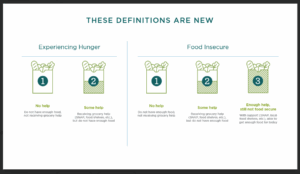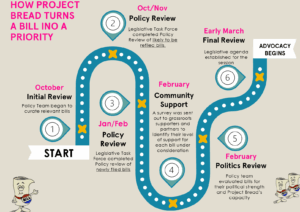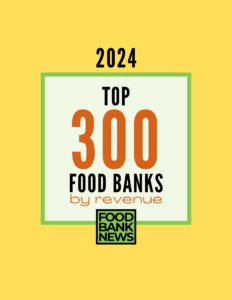For food bank advocates seeking to sway their state legislatures toward policies that promote health and nutrition, Dariush Mozaffarian has some guidance about where to push.
States can take advantage of three big federal tools, each with a lot of funding behind them, to promote a healthier populace, said Mozaffarian, who is Dean of the Friedman School of Nutrition Policy and Science at Tufts University.
The biggest of the three is Medicaid, which states administer. Using Section 1115 waivers, states now have the opportunity to use Medicaid to pay for nutritious food (more on that here). While five states so far have been approved to do so (including Oregon, Arkansas, Arizona, Massachusetts and more recently California), the pathways for using Medicaid for food are relatively new. Mozaffarian said he is in communication with the Department of Health and Human Services to “encourage it to put out very clear guidance to all the states” on how to leverage Medicaid for better nutrition.
The second federal tool is SNAP, which has long been important to ensuring food security, but unlike WIC or school meals, does little to ensure nutrition security, Mozaffarian contended. He would like to see states initiate pilot programs that would deploy SNAP in healthier ways, such as using it to pay for hot meals or promoting incentives for healthy food purchases. “We have to have more innovation in SNAP,” he said.
Finally, states can strive to make improvements in school meals, another big federally backed program. One route is to permanently ensure free school meals for all kids, regardless of their household income, as a slowly growing number of states are doing. Another is to impose nutrition standards that are stronger than the federal standards, particularly around whole grains, sodium and added sugars, Mozaffarian said.
At the state level, there are various regulatory actions states could take, such as imposing a tax on soda and sugary beverages or putting warning labels on food that are high in sodium. Mozaffarian made his comments at a summit organized by the Hunger to Health Collaboratory in November. Food Bank News was made aware of them last week through the publication of the organization’s newsletter.
Mozaffarian, who co-chaired a task force that advised the recent White House Conference on Hunger, Nutrition and Health, was optimistic that many of the legislative recommendations coming out of the conference would be adopted, despite the House having a slight Republican majority following the mid-term elections.
A key reason for his optimism is the impact that poor public health has on the economy. Subpar nutrition is driving up healthcare spending; harming kids who are trying to learn in school, and escalating the costs of private businesses that pay for health insurance, he said. Healthcare spending now accounts for almost $1 of every $3 in the federal budget. Meanwhile, the number-one medical reason young Americans can’t enroll in the military is obesity, making poor health a national security threat. “None of that is partisan,” Mozaffarian said.
He cited three “exciting” developments in the food and nutrition world that are widely supported by both political parties. Food as Medicine, such as when doctors issue prescriptions for healthy food, “is really, really supported by Republicans,” he said. Support for science, such as around cancer and genetics research, has generally been bi-partisan and can help spur advances in nutrition research. And thirdly, bipartisan support for business innovation can be applied to food, in much the same way it has been for clean energy.
If the anti-hunger community were simply trying to increase funding for basic food assistance programs, it would be much harder to get the support it needs. Making nutrition as important a pillar as hunger is critical, he said, “because that is how we’re going to get things done.” – Chris Costanzo
CAPTION FOR PHOTO, TOP: Dariush Mozaffarian speaking at the Hunger to Health Collaboratory in November.
Like what you’re reading?
Support Food Bank News








